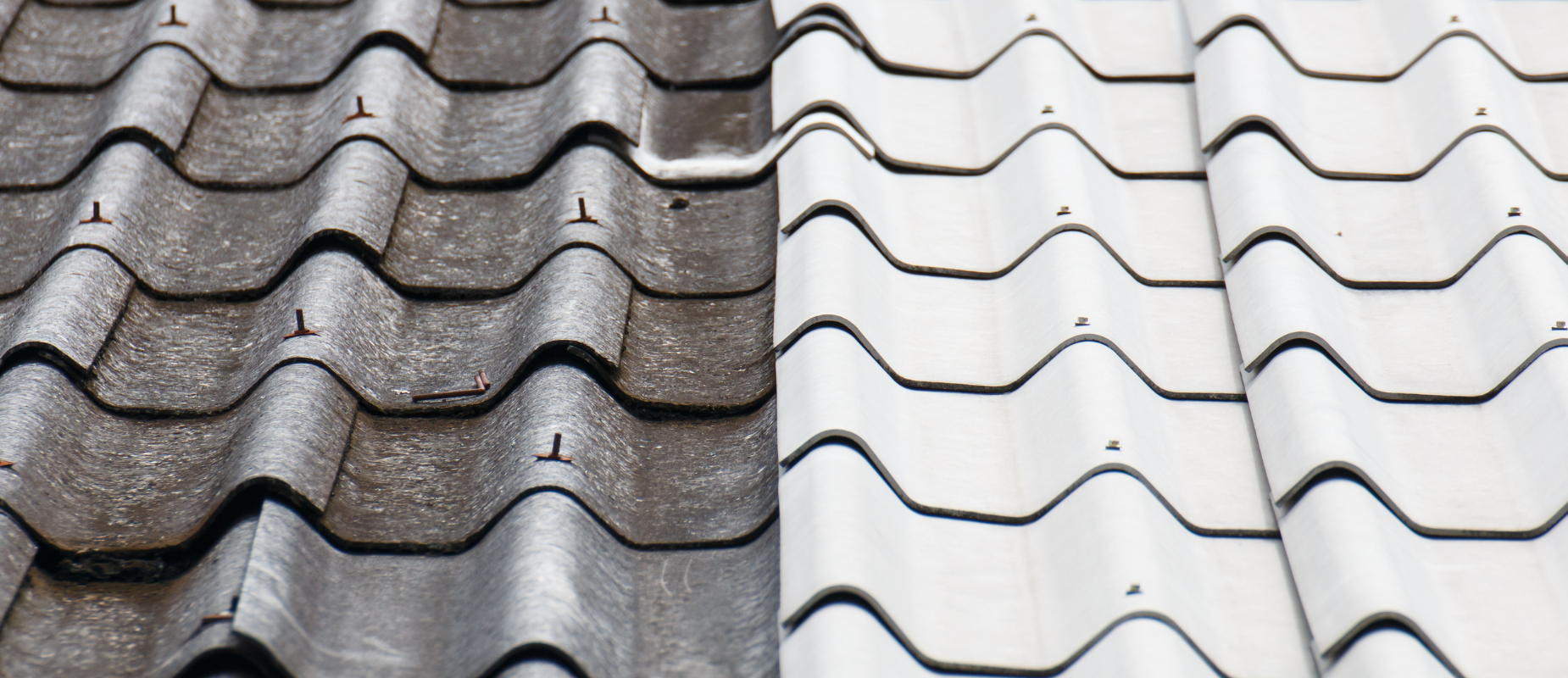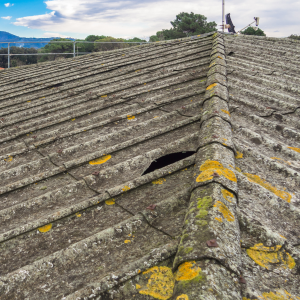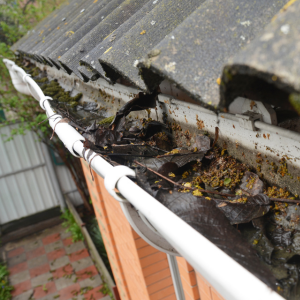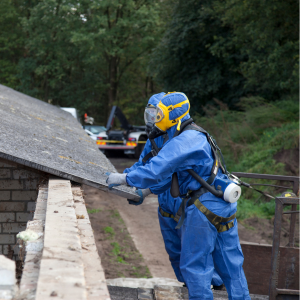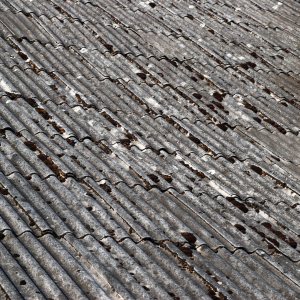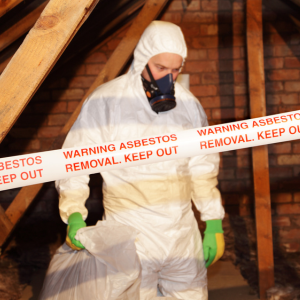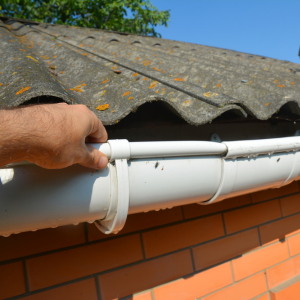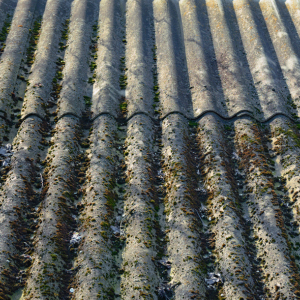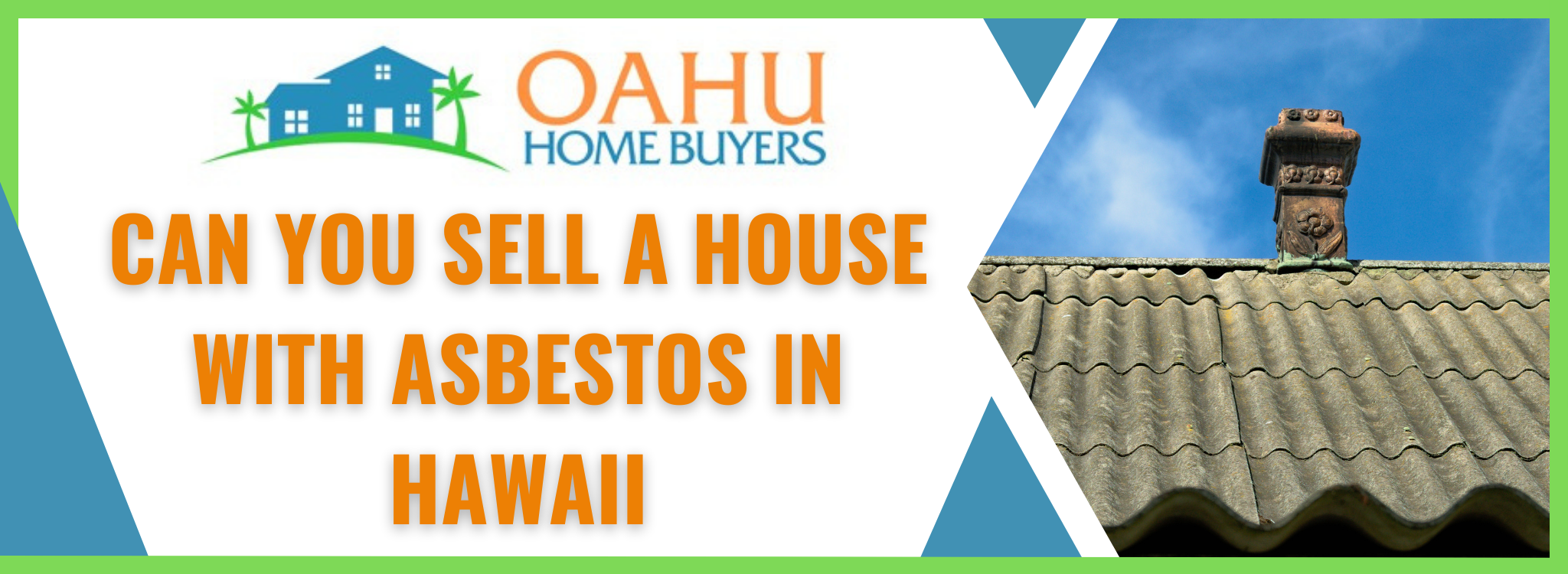
Assessing Asbestos Risks in Hawaiian Homes
What are the common asbestos-containing materials in Hawaiian homes?
Many older houses in Hawaii contain building materials made with asbestos. Asbestos is a mineral known for being strong and resistant to heat. You can commonly find asbestos in:
- Insulation: Often around pipes, boilers, and air ducts.
- Roofing and siding: Some cement shingles and tiles may contain asbestos.
- Flooring: Vinyl tiles and their backing can also have asbestos fibers.
Knowing where asbestos might be in Hawaiian homes is essential, especially for houses built before the 1980s. Identifying these materials helps homeowners make safe choices about renovations or demolitions, keeping with health regulations.
How does asbestos affect property value in Hawaii?
Asbestos can lower a property’s value in Hawaii. Buyers are concerned about health risks, often leading to reduced offers. Dealing with known asbestos problems can be expensive, impacting the final selling price. Also, some buyers might avoid homes with asbestos issues altogether, making these homes less competitive in the market.
Concerns about asbestos in Hawaii’s real estate involve current risks and future liabilities. Unresolved asbestos issues can lead to legal and financial problems, making it vital to disclose such matters during transactions. Recognizing the impact of asbestos on property values is crucial for buyers and sellers in Hawaii’s housing market.
What are homeowner responsibilities for asbestos disclosure?
In Hawaii, homeowners must disclose any known asbestos in their property. These asbestos disclosure requirements mean sellers must inform potential buyers about any asbestos-containing materials. Transparency protects everyone involved and ensures compliance with Hawaii’s real estate laws.
Homeowners who fail to disclose this information might face legal and financial penalties. It’s wise for homeowners to have their properties assessed by certified professionals to identify any asbestos presence. Doing so fulfills their responsibilities and facilitates a safe and informed transaction process.
Engaging experts for thorough inspections meets legal requirements and builds trust with potential buyers, ultimately supporting a smooth transaction and maintaining the seller’s reputation.
Discover how to navigate asbestos disclosures and attract confident buyers for a successful sale in Oahu Home Buyers.
Legal Considerations for Selling a House with Asbestos
What are the legal requirements for asbestos disclosure in Hawaii?
Knowing the asbestos disclosure rules is crucial when selling a house in Hawaii. Throughout the sales process, sellers have to offer an asbestos disclosure document. Hawaii real estate rules require sellers to tell purchasers of known asbestos-containing products. Proper asbestos disclosure guarantees openness and helps prevent conflicts down the road. Written documentation of these revelations should be part of the purchasing agreement. Ignoring asbestos disclosure policies when selling a house could cause significant legal problems.
How do Hawaii’s regulations impact the selling process?
Hawaii’s asbestos laws significantly affect the real estate market. Concerns about Hawaii real estate asbestos lead sellers to act on asbestos issues early. Regulations require homeowners to disclose known asbestos before selling, which can affect the Hawaii housing market and property values. Knowing Hawaii property law, asbestos is key to selling a home with asbestos. Early addressing of asbestos issues can help make the sale smoother and prevent delays from late discoveries.
Are there penalties for failing to disclose asbestos?
If you don’t disclose known asbestos, you might face harsh penalties under Hawaii environmental laws asbestos. In Hawaii, sellers who ignore this duty could face fines, lawsuits, or asbestos litigation. According to Hawaii real estate asbestos regulations, not disclosing asbestos can harm the seller’s reputation and lead to expensive court cases. Sellers should understand these risks and follow disclosure rules to avoid legal trouble. Following asbestos regulations protects the seller legally and builds trust with potential buyers.
Learn the essential steps to ensure a legal and hassle-free home sale in Oahu Home Buyers.
Exploring Solutions to Mitigate Asbestos Concerns
What are the benefits of asbestos abatement versus encapsulation?
Builders widely use asbestos as a building material, but researchers have discovered that its fibers can be hazardous to health when they enter the air. Homeowners in Hawaii need to choose between removing asbestos and sealing it if possible.
- Asbestos abatement means removing all asbestos-containing materials from a property. This method is thorough and removes future risks of asbestos exposure. In Hawaii, where the humid climate can weaken materials over time, abatement provides peace of mind.
- Encapsulation is a less invasive option that involves sealing asbestos materials to stop fiber release. It is usually more cost-effective than complete removal and is suitable for minimal disturbance of asbestos materials.
Choosing the best method depends on factors like the condition of the asbestos, Hawaii’s unique environment, and budget concerns, including Hawaii asbestos removal costs. Consulting with professionals familiar with asbestos safety in Hawaii homes is essential for making the right choice.
Should sellers hire professional asbestos inspectors?
When selling a property in Hawaii, understanding its asbestos status is crucial for compliance and ensuring buyers’ safety. Hiring professional asbestos inspectors is highly advisable for several reasons:
- Thorough Evaluation: A professional asbestos inspection in Hawaii gives a detailed analysis of asbestos risks. Inspectors use modern techniques to spot and record asbestos presence.
- Compliance and Safety: A certified inspector identifies and addresses asbestos issues legally, enhancing the property’s appeal.
- Expert Recommendations: Inspectors can recommend whether asbestos encapsulation or removal is better based on their professional evaluation of the Hawaiian property.
Using asbestos inspection services assures buyers of a safe home, leading to smoother transactions.
What are the costs associated with asbestos remediation in Hawaii?
Homeowners in Hawaii need to understand the costs of removing asbestos. The costs of fixing asbestos problems depend on several factors:
- The extent of Contamination: The size and scope of asbestos contamination significantly affect Hawaii asbestos removal costs. Larger areas with more asbestos need more work and resources.
- Method of Remediation: Choosing between asbestos abatement and encapsulation also impacts costs. Complete abatement is typically pricier due to its labor demands and disposal needs.
- Local Factors: Hawaii’s specific geographic and logistical aspects, such as access to remote locations and local regulations, can influence prices.
Homeowners should get quotes from several service providers specializing in asbestos remediation in Hawaii to find competitive pricing. Planning helps with budgeting and ensures best practices for maintaining asbestos safety in Hawaiian homes.
Negotiation Strategies for Homes with Asbestos
Can offering credits or price adjustments satisfy potential buyers?
When selling a house with asbestos, a common question arises: can offering financial perks like credits or adjusting the sale price satisfy potential buyers? Many homebuyers in Hawaii might initially hesitate to purchase a property with asbestos. Offering credits or a lowered price can often ease these worries. These incentives help cover future asbestos removal or containment costs, making the offer more attractive. It’s key to understand how much these perks are worth to buyers to keep the property competitive. Ultimately, the success of these strategies depends on each buyer’s risk tolerance and plans for the home.
How do you balance transparency and sales strategy?
Finding a balance between transparency and sales strategy is essential when selling a house with asbestos in Hawaii. Disclosing the presence of asbestos isn’t just legally required—it’s vital for building trust with potential buyers. Explaining where the asbestos is and any steps taken to manage it can ease buyer concerns. While asbestos can pose health risks, techniques like encapsulation can safely operate it if immediate removal isn’t possible. By being open, sellers can maintain credibility and potentially smooth out negotiations. In Hawaii’s competitive real estate market, transparency and innovative strategies can lead to successful sales despite asbestos challenges.
What role do real estate professionals play in these negotiations?
Real estate professionals play a key role in negotiating the sale of homes with asbestos. In Hawaii, they guide sellers through the challenging process of marketing these properties and ensure compliance with asbestos disclosure rules. A knowledgeable home buyer offers advice on pricing strategies that factor in both the property’s assets and liabilities. They also handle buyer questions, negotiate terms, and explain asbestos concerns accurately and reassuringly. A certified inspector identifies and addresses asbestos issues legally, enhancing the property’s appeal. Experienced home buyers use their local market knowledge to facilitate beneficial transactions for sellers and buyers, turning potential setbacks into negotiated successes.
Influencing Factors on Buyer Decisions
How does asbestos influence home insurance policies in Hawaii?
Asbestos can have a significant impact on house insurance plans in Hawaii. Insurance companies consider asbestos due to the health dangers it poses. Homes with asbestos in Hawaii may face higher insurance premiums or perhaps coverage limits.
Hawaii real estate asbestos concerns include safety and removal/containment expenses. Insurers often need extensive inspections to verify asbestos levels, which might affect policy terms. To minimize insurance troubles, homeowners should address these concerns early.
What are buyer rights regarding asbestos in real estate transactions?
In Hawaii, buyers have protections when buying real estate that has asbestos. Laws require buyers to reveal if there is any known asbestos, ensuring honesty. Understanding asbestos issues is essential because it helps buyers make informed decisions.
Under state regulations, sellers of houses with asbestos in Hawaii must disclose this. Sellers or real estate agents should inform buyers about asbestos issues so they can negotiate terms or request remediation before closing. Knowing these rights helps buyers protect themselves in real estate deals.
How can a seller reassure potential buyers about safety concerns?
Sellers can ease buyers’ worries about asbestos by taking a few key steps. Informing buyers about Hawaii asbestos regulations and showing compliance can demonstrate responsibility. Providing documents from professional inspections or abatement work can also build trust.
Communicating clearly about asbestos hazards in Hawaii homes and detailing safety measures taken can reduce buyer anxiety. Highlighting efforts to address asbestos can help sellers gain the confidence of prospective buyers.
For Hawaii home sales involving asbestos, being open and proactively managing any issues is essential. These actions help transactions go smoothly and maintain home value and buyer interest.
Discover the essential steps to selling a home with asbestos safely and legally. Learn how to handle inspections, negotiate with buyers, and comply with Hawaii’s real estate laws for a smooth home sale by contacting Oahu Home Buyers for expert guidance and support.
FAQs:
Can you sell a house with asbestos in Hawaii?
Yes, you can sell a house with asbestos in Hawaii. However, according to Hawaii real estate laws, you must disclose its presence to potential buyers. Conduct a thorough asbestos risk assessment and inform buyers.
What are the disclosure requirements for selling a property with asbestos in Hawaii?
In Hawaii, sellers are required to inform buyers about any known asbestos. This means giving an asbestos inspection plan and being open during sales.
Is it legal to sell a house with asbestos without removing it?
Yes, selling a house with asbestos without removing it is legal, but full disclosure to the buyer is crucial. Buyers must be informed about asbestos risks and responsibilities for managing or eliminating it.
What are Hawaii’s guidelines for realtors when dealing with asbestos?
Hawaii realtors must follow strict guidelines to adequately disclose asbestos to buyers. They should provide information on Hawaii’s asbestos removal laws and safety-related building codes.
How does asbestos impact the housing market in Hawaii?
Asbestos can influence house sales due to buyer concerns about health risks and removal costs. Proper disclosure and risk assessment help reassure buyers and make transactions smoother.
Are there any tenant rights in Hawaii concerning asbestos?
Tenants in Hawaii have the right to know if asbestos is present in rental properties. Landlords must ensure legal disclosure and follow Hawaii asbestos laws to keep tenants safe.
What steps should be taken if asbestos is found in a Hawaiian property?
If asbestos is found, conduct a professional risk assessment. Follow Hawaii’s legal disclosure requirements and consider consulting experts for removal or containment as per state regulations.
What role does asbestos litigation play in Hawaii’s real estate market?
Asbestos litigation in Hawaii leads to stricter compliance with disclosure laws. It highlights the importance of accurate information sharing between sellers, buyers, and realtors to avoid legal issues.
Key Insights
- You can sell a house with asbestos in Hawaii, but it’s essential to know your responsibilities as a seller and any legal implications in the housing market.
- Houses with asbestos in Hawaii must meet specific disclosure requirements for an honest sales process.
- Selling property in Hawaii with asbestos requires understanding local real estate laws to protect buyer interests.
- Asbestos’s presence can affect a house’s sale, potentially impacting its value and marketability.
- It’s possible to sell a house with asbestos; being open about it is crucial for maintaining trust in the real estate market.
- Working with real estate professionals can simplify the process of selling a house in Hawaii, especially one with asbestos.
- Can you sell an asbestos house in Hawaii? Yes, but you must fully disclose the asbestos condition to potential buyers.
- If you’re wondering, “Can you sell? ” Proper guidance can help you successfully sell houses with asbestos.
- House in Hawaii listings should mention asbestos concerns to align with state regulations and ethical sales practices.
- Understanding real estate in Hawaii, including issues like asbestos, helps reduce risks and ensures a smooth transaction.
We buy houses in Hawaii on all the island and its cities, including Oahu, Maui, Honolulu, Pearl City, Waipahu, and others. If you need assistance in Kona or have questions about selling your home to cash home buyers in Hawaii, call us at (808) 333-3677. You can also find more information on our company page.

